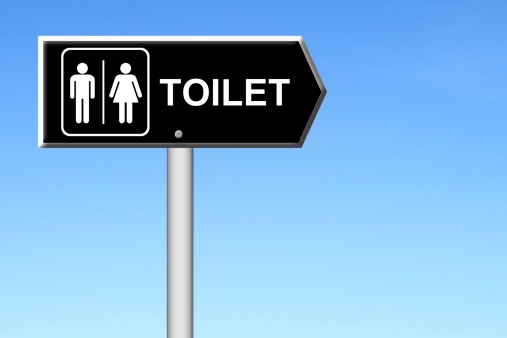 Urinary tract infections (UTIs) are uncomfortable, painful, and responsible for approximately 10 million doctor visits in the U.S. each year. In fact, an estimated 20% of American women will experience at least one UTI in her lifetime!
Urinary tract infections (UTIs) are uncomfortable, painful, and responsible for approximately 10 million doctor visits in the U.S. each year. In fact, an estimated 20% of American women will experience at least one UTI in her lifetime!
A UTI transpires when bacteria gets into the urinary tract (a.k.a. the bladder) and multiplies. This can lead to swelling and pain in the urinary tract, which can make it quite unpleasant when urinating. If not treated, the bacteria can move up to the kidneys and cause an infection of the kidneys.
UTI Symptoms
Symptoms vary from person to person, but most people with a UTI experience at least one of the following symptoms:
- Urinary frequency: In extreme cases, a person can urinate up to 60 times a day.
- Urinary urgency: You might feel the need to urinate right away, but only have a few drops of urine pass through.
- Pain/burning sensation: This can include a burning sensation or pain when urinating, frequent abdominal pain, or pressure in the abdomen; men may experience pain in the testicular and scrotum area while urinating or pain during ejaculation.
- Odor: Take notice if there is a strong, musky odor to your urine.
Common Types of UTIs
UTIs mainly occur in women and affect the urethra and bladder. The most common types of UTIs are:
- Cystitis (infection of the bladder): This UTI is generally caused by E. coli, which is a type of bacteria normally found in the gastrointestinal tract (GI). Sexual intercourse can lead to cystitis, but all women are at risk of getting it, because of how close the urethra is to the anus and the opening to the bladder.
- Urethritis (infection of the urethra): This typically occurs when GI bacteria spreads from the anus to the urethra. Because of how close the urethra is to the vagina, sexually transmitted diseases, such as herpes or gonorrhea, can cause this infection.
Top 5 Bladder Inflammation Home Remedies
Here are five natural remedies that can help soothe the symptoms of a UTI:
1. Drink water: Drink eight or more glasses of water every day to flush the bacteria out of your system.
2. Just pee: Some people try to hold in their urine until the absolute last second. By holding your pee in, there is an increased chance that the bacteria will grow and multiple. Even if it’s uncomfortable to urinate, the more you do it, the more bacteria you will flush out of your system.
3. Eat cucumbers: Cucumbers are known for their high water content. In addition to the water you drink, cucumbers are a good way to get extra fluid into your system to aid in flushing out the bacteria.
4. Ginger tea: Ginger has potent anti-inflammatory compounds that can help prevent and reduce inflammation in the body. I’d recommend ginger tea as a delicious remedy.
5. Blueberries: According to a 1998 study published in The New England Journal of Medicine, the compounds proanthocyanidins found in blueberries can help prevent bacteria from sticking to the walls of the urinary tract. Blueberries are also rich in vitamin C, which can impede the growth of bacteria in the urinary tract.
What to Avoid If You Have a UTI
1. Caffeine: Caffeine can cause more irritation to your bladder if you have a urinary tract infection. It is recommended that you reduce or eliminate products that contain caffeine, including coffee, tea, chocolate, and soda, until your infection is healed.
2. Alcoholic beverages: Alcohol can irritate your bladder, which can be counterproductive when you’re trying to flush the bacteria out of your system— stick to water!
3. Acidic fruits: According to the National Association of Incontinence, citric acid can irritate the bladder. If you have a UTI, stay away from citrusy fruits, such as oranges, limes, and lemons.
Sources:
Goodall, C., “14 Natural Home Remedies for UTI Pain & Discomfort,” Everyday Roots web site; http://everydayroots.com/uti-remedies, last accessed June 15, 2015.
Wallace, R., “11 Foods to Avoid if You Have OAB,” Healthline web site, January 28, 2013; http://www.healthline.com/health-slideshow/11-foods-to-avoid-if-you-have-oab#1.
“General IC Symptoms,” Interstitial Cystitis Association web site; http://www.ichelp.org/page.aspx?pid=822, last accessed June 15, 2015.
“Urinary Tract Infection,” Mayo Clinic web site, April 29, 2012; http://www.mayoclinic.org/diseases-conditions/urinary-tract-infection/basics/causes/con-20037892.
“Urinary Tract Infections,” National Kidney Foundation web site, https://www.kidney.org/sites/default/files/uti.pdf; last accessed June 15, 2015.
